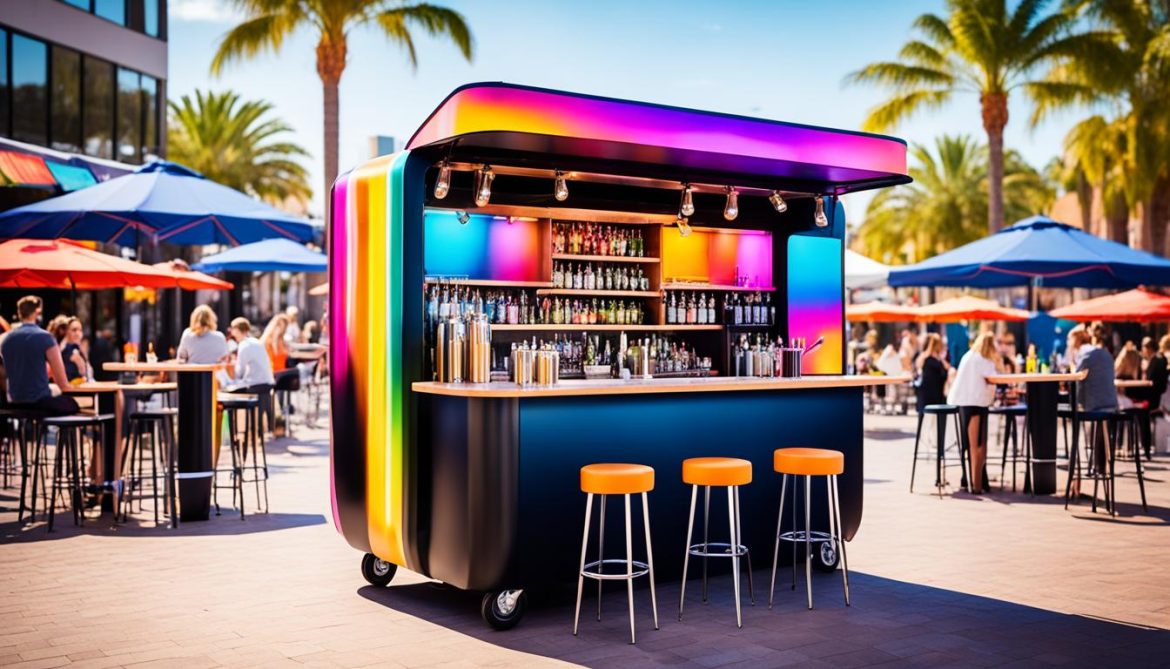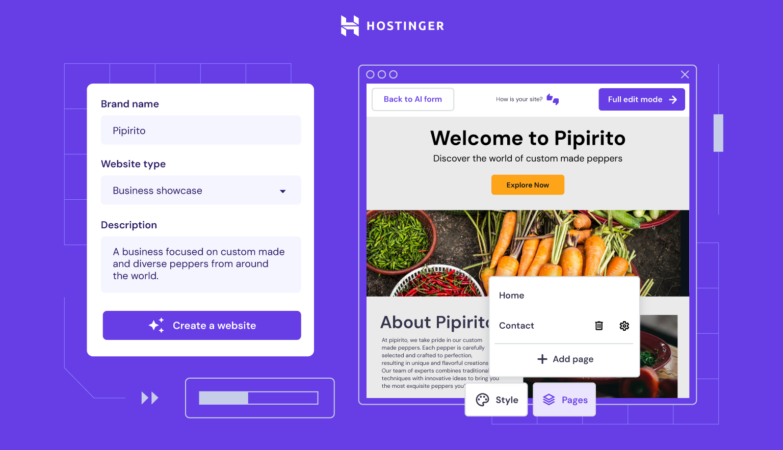Starting a mobile bar business can be an exciting and lucrative entrepreneurial opportunity. Whether you’re looking to cater weddings, festivals, private events, or corporate functions, there are essential tips that can help you lay the foundation for a successful venture.
Key Takeaways
- Network and collaborate with professionals in the industry to build relationships and create brand awareness.
- Focus on providing exceptional customer service and creating a memorable experience for clients.
- Determine your target market and the types of services you want to offer.
- Secure the necessary equipment and licenses to operate your mobile bar business.
- Develop a strong brand identity and implement an effective marketing strategy to attract customers and promote brand recognition.
Determine Your Target Market and Preferred Services
Before launching your mobile bar business, you need to determine your target market and the type of bar services you want to offer. This will help you streamline your efforts and cater to the specific needs and preferences of your customers. Consider specializing in various types of bars such as cocktail bars, beer bars, wine bars, or offering a general mobile bar experience.
For example, specializing in cocktail bars could open up opportunities to cater to events such as weddings, private parties, and upscale corporate functions, where craft cocktails and mixology are highly valued.
Understanding your target market and the type of services they require will guide you in selecting the appropriate events and venues to focus on. Each market segment may have different demands and expectations, so it’s essential to tailor your offerings accordingly.
In summary:
- Identify your target market
- Decide on the type of bar services you want to offer
- Consider specializing in specific types of bars (cocktail, beer, wine) or offering a general mobile bar experience
- Take into account the types of events and venues your target market is likely to frequent
Secure the Necessary Equipment and Licenses
When setting up a mobile bar company, it is crucial to secure the essential equipment and licenses to ensure smooth operations. The type of equipment you’ll need will depend on the type of mobile bar you choose. Consider options such as a van, trailer, bicycle with an attached cart, or a pop-up stall. The equipment should be functional, durable, and capable of meeting the demands of your business.
Furthermore, obtaining the necessary licenses is vital for legally selling alcoholic beverages. One of the key licenses you’ll need is a liquor license, which must be obtained from the appropriate state or local agency. It’s important to thoroughly research and comply with all legal requirements to avoid any potential legal issues or disruptions to your business.
Here is a breakdown of the essential equipment and licenses for a mobile bar:
| Equipment | Licenses |
|---|---|
| Van, trailer, bicycle with attached cart, or pop-up stall | Liquor License |
| Bar supplies (such as a bar setup, glassware, utensils, and ice bins) | Health Department Permit |
| Beverage dispensing systems (such as taps, kegs, and refrigeration units) | Business License |
| POS system for transactions and inventory management | Seller’s Permit |
| Signage, branding materials, and decorations | Food Handling Permit (if offering food) |
Ensuring that you have the necessary equipment and licenses will set the foundation for a successful mobile bar business. By adhering to legal requirements and investing in high-quality equipment, you can provide a professional and enjoyable experience for your customers.
Develop a Brand Identity and Marketing Strategy
Building a strong brand identity and marketing strategy is crucial for the success of your mobile bar business. By determining the unique experience you want to offer, you can create a strong foundation for your brand. Consider the preferences of your target market and decide whether you want to create a fun and hip brand or a more professional and corporate-oriented one.
Consistency is key when it comes to brand elements such as logo, visuals, and customer experience. Ensuring a cohesive brand identity will help customers recognize and remember your mobile bar business.
Implementing effective marketing tactics is essential for attracting customers and promoting brand recognition. Establish an online presence through social media platforms and a professional website. Collaborate with event planners, wedding coordinators, and other relevant professionals to expand your network and reach a wider audience.
Here is an example of a marketing strategy for launching a mobile bar business:
| Marketing Tactics | Description |
|---|---|
| 1. Social Media Marketing | Utilize platforms such as Instagram and Facebook to showcase your mobile bar business, post engaging content, and interact with potential customers. |
| 2. Email Marketing | Build an email list of interested customers and send regular updates, promotions, and event announcements. |
| 3. Collaborations | Partner with local businesses or event organizers to offer exclusive packages or joint marketing campaigns. |
| 4. Event Sponsorship | Sponsor local events or charity fundraisers to increase brand visibility and reach a targeted audience. |
| 5. Influencer Partnerships | Work with influencers or bloggers in the food and beverage industry to promote your mobile bar business to their followers. |
To enhance your marketing strategy further, focus on providing exceptional customer service and engaging with your audience. This will not only attract potential customers but also encourage repeat business and positive word-of-mouth referrals.
Developing a strong brand identity and implementing a well-rounded marketing strategy will set your mobile bar business apart from the competition and increase your chances of success.
Focus on Customer Service and Continuous Improvement
Providing excellent customer service is vital for the success of your mobile bar business. Training your staff to be knowledgeable, friendly, and efficient, as mentioned in “First source”, will help create a positive and memorable customer experience. By prioritizing customer satisfaction, you can ensure repeat business and generate positive reviews and word-of-mouth referrals.
It is also important to stay updated with the latest industry trends and continuously improve your services. Attending workshops or conferences and seeking feedback from customers, as outlined in “First source”, can provide valuable insights and prompt you to adapt and enhance your offerings to meet evolving customer needs.
By focusing on customer service and continuous improvement, you can establish a reputation as a trusted and customer-centric mobile bar business, setting yourself apart from competitors and attracting loyal clientele.
Manage Finances and Pricing
Proper financial management is essential for the long-term success of your mobile bar business. By carefully managing your finances and setting competitive prices, you can ensure profitability and sustainability in your venture.
Set a Pricing Strategy
Determining the right pricing strategy is crucial for your mobile bar business. Consider factors such as the cost of ingredients, running and overhead costs, and competitive market rates. It’s important to strike a balance between affordability for customers and maintaining a healthy profit margin.
Track and Monitor Expenses
Keeping track of your expenses is vital for maintaining financial stability. This includes costs associated with equipment, payroll taxes, licensing fees, and ongoing marketing expenses. Regularly reviewing your expenses will help identify areas where you can cut costs and optimize efficiency.
| Expense | Estimated Cost |
|---|---|
| Equipment | $10,000 |
| Payroll Taxes | $2,000 per year |
| Licensing Fees | $500 per year |
| Marketing Expenses | $1,500 per month |
Review and Adjust Pricing
Regularly reviewing and adjusting your pricing strategy is essential to adapt to market changes and ensure competitiveness. Keep an eye on industry trends and your competitors’ pricing to stay informed. Solicit feedback from customers to gauge their perception of your pricing and make necessary adjustments to maximize profitability.
By effectively managing your finances and setting competitive prices, you can position your mobile bar business for long-term success. However, it’s important to remember that pricing is just one aspect of financial management. Regularly assessing your expenses and revenue streams will help you make informed decisions and ensure the financial health of your venture.

Conclusion
Starting a mobile bar business is an exciting venture that requires careful planning and strategic decision-making. By following the essential tips outlined in this mobile bar business guide, you can set yourself up for success. Remember to network with industry professionals, such as event planners and caterers, to build valuable connections and create brand awareness.
Developing a strong brand identity is crucial for standing out in the market. Provide exceptional customer service and create a memorable experience for your clients. Keep up with industry trends, continuously improve your services, and seek feedback from your customers.
Managing your finances effectively is key to long-term success. Determine your pricing strategy based on factors such as cost of ingredients, running costs, and market rates. Stay updated on licensing requirements and ensure compliance with all legal obligations.
FAQ
How do I determine my target market and the services I want to offer for my mobile bar business?
Consider whether you want to specialize in cocktail bars, beer bars, wine bars, or a general mobile bar. This will help you determine the types of events and venues to focus on. You can choose to cater to weddings, festivals, private events, or corporate functions, among others. Understanding your target market and catering to their preferences will increase your chances of success.
What equipment and licenses do I need to run a mobile bar business?
The type of equipment you’ll need will depend on the type of mobile bar you choose, such as a van, trailer, bicycle with an attached cart, or a pop-up stall. Additionally, you’ll need to consider the necessary licenses for selling alcoholic beverages. This includes obtaining a liquor license from the appropriate state or local agency. It’s essential to comply with all legal requirements to operate your mobile bar business smoothly.
How do I develop a brand identity and marketing strategy for my mobile bar business?
Determine the unique experience you want to offer and consider your target market’s preferences. Ensure consistency in your brand elements such as logo, visuals, and customer experience. Implement effective marketing tactics, including online presence, networking, and collaborations. This will help attract customers and promote brand recognition.
Why is customer service important for a mobile bar business?
Providing excellent customer service will lead to repeat business, generate positive reviews, and create word-of-mouth referrals. Train your staff to be knowledgeable, friendly, and efficient. Stay updated with industry trends, attend workshops or conferences, and seek feedback from customers to continuously improve and adapt your services.
How should I manage the finances and pricing for my mobile bar business?
Determine your pricing strategy based on factors such as cost of ingredients, running and overhead costs, and competitive market rates. Consider the profit margin while setting prices. Keep track of your expenses, including equipment costs, payroll taxes, licensing fees, and ongoing marketing expenses. Regularly review and adjust your pricing strategy to ensure profitability and sustainability.







